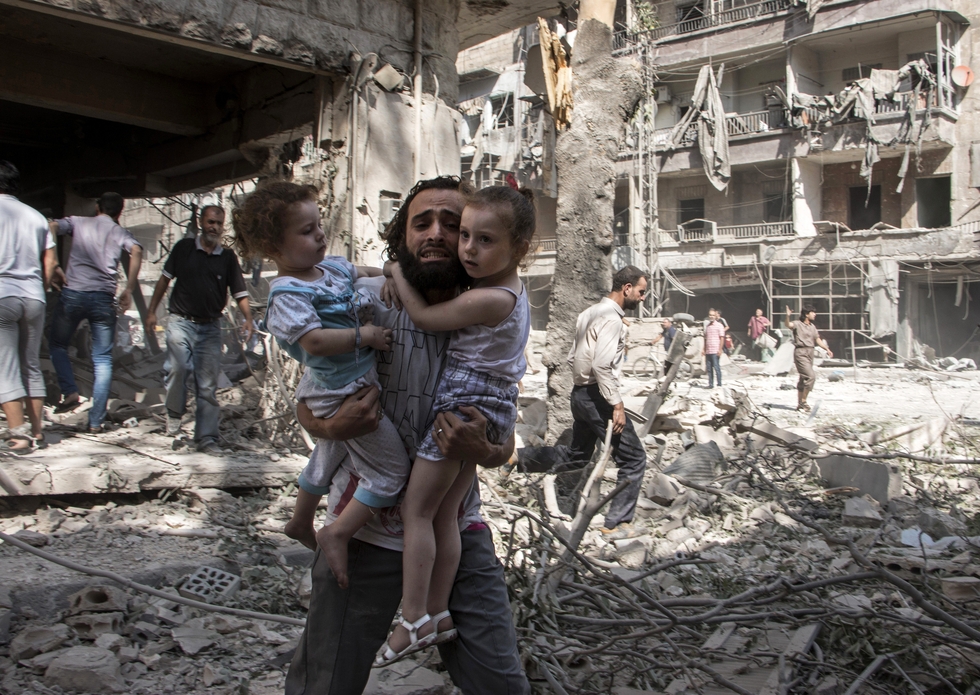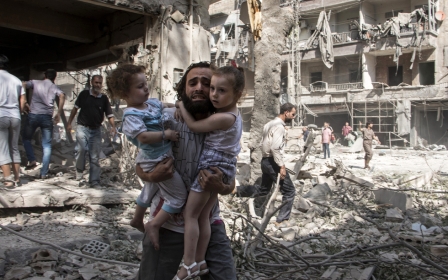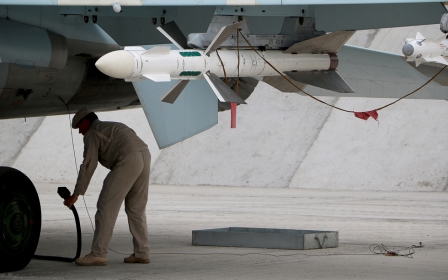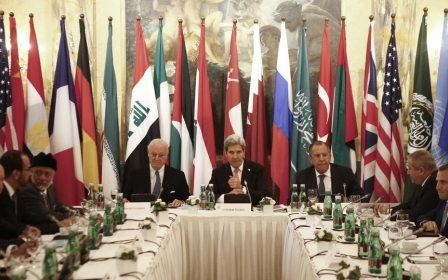Syria opposition express scepticism towards UN-backed peace plan

Members of Syria’s opposition has expressed skepticism towards a UN-backed roadmap to end the Syrian war.
The US and Russian initiative, unanimously approved by the UN Security Council on Friday, foresees talks between the rebels and the government and a rapid ceasefire, perhaps even next month.
But the man Syrian opposition grouping, the Istanbul-based National Coalition, described the plan as unrealistic.
The resolution "undermines the outcome of the meetings of revolutionary forces in Riyadh and waters down previous UN resolutions concerning a political solution in Syria," coalition head Khaled Khoja said on Twitter.
Fellow coalition member Samir Nashar said bombings conducted by the government and Russia must stop for there to be a sustainable ceasefire, otherwise "the agreement is absolutely not applicable".
The Security Council met after the latest round of talks by the International Syria Support Group (ISSG), which had gathered in New York to renew its push for peace.
"In January we hope and expect to be at the table and to be able to implement a full ceasefire," US Secretary of State John Kerry said.
"And that means all the barrel bombs will stop, all the bombing, all the shooting, all the attacks on either side."
The United States and Arab allies remain convinced Assad must leave office as part of the process, but his allies Moscow and Tehran insist that the Syrian people should decide his fate.
The resolution does not touch on this vital issue.
"We often hear the argument that without resolving the Assad question, it is impossible to truly coordinate in the fight against terrorism," Russian Foreign Minister Sergei Lavrov said.
"This is a dangerous logic, a dangerous approach," RIA Novosti news agency quoted him as saying.
Kerry, who has "agreed to disagree" with Moscow on Assad's fate, emphasised that victory over the Islamic State (IS) group hinges on a peaceful settlement in the civil war.
"We know that Daesh can never be allowed to gain control in Syria so we have a global imperative here to deal with a terrorist entity but also to end the civil war," he said, using an Arabic acronym for IS.
He said Assad had "lost the ability, the credibility" to unite and govern Syria.
But experts nevertheless see a narrowing of differences between the major powers.
"The West and Russia's position are coming closer together," Alexander Baunov, a political analyst at the Carnegie Moscow Center, told AFP.
"Russia would not have voted for a resolution in which it would have been written that Assad needs to step down. The absence of Assad is a form of compromise to get the resolution through."
Karim Bitar, head of research at the Institute for International and Strategic Affairs, described the UN-backed plan as "a very significant first step" but added, "many ambiguities and ulterior motives remain".
"Sunni regional powers still fear that this pragmatism perpetuates the status quo and allows Assad to stay too long during a transition period," he said.
The Security Council resolution calls for "free and fair elections" supervised by the United Nations within 18 months in which all Syrians would be eligible to vote.
More than 250,000 people have died since the conflict erupted in March 2011, and millions more have fled their homes.
Middle East Eye propose une couverture et une analyse indépendantes et incomparables du Moyen-Orient, de l’Afrique du Nord et d’autres régions du monde. Pour en savoir plus sur la reprise de ce contenu et les frais qui s’appliquent, veuillez remplir ce formulaire [en anglais]. Pour en savoir plus sur MEE, cliquez ici [en anglais].




